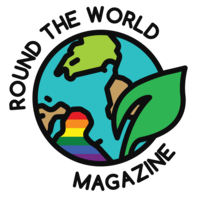Cold Vs COVID: How To Tell The Difference
Since its discovery in Wuhan, China, the coronavirus disease has undoubtedly been the most significant public health crisis of the past year.

Many people carefully follow all the recommended prevention protocols and keep a watchful eye out for the telltale symptoms of COVID-19. However, identifying the exact symptoms of COVID-19 has proved somewhat challenging during this period because the coronavirus symptoms closely resemble seasonal allergies and flu symptoms. Here is how to tell the difference between cold and COVID-19.
Cold or COVID?
Viruses are responsible for both the common cold and COVID-19, and even some other types of coronaviruses cause the common cold. These viruses spread in identical ways and have similar signs and symptoms. However, here are some of the few differences between the two conditions.
● Transmission
Viruses responsible for the coronavirus and common cold spread through contact with respiratory droplets that people can inhale after an infected person sneezes, talks, or coughs. People who inhale droplets containing these viruses may become unwell soon after. However, viruses that cause cold can survive on the hands, surfaces, and objects for around 24 hours.

On the other hand, the National Health Service (NHS) says that coronavirus primarily spreads via close contact with someone who has the virus. Also, people with COVID-19 typically develop symptoms about five to six days after exposure, although it can take up to two weeks for symptoms to manifest. Comparatively, common cold symptoms usually show up within a few days of infection.
● Severity
The common cold and COVID-19 also differ in terms of severity significantly. With the common cold, many people experience mild to moderate symptoms and recover in seven to ten days without any treatment. In rare cases, it is possible to develop secondary infections like an ear infection or sinusitis from colds, which doctors can readily treat with antibiotics. Also, people with weaker immune systems may experience more severe complications like pneumonia.
However, viruses responsible for most colds are usually self-limiting in many healthy adults and will clear up on their own without any unique treatment.
Comparatively, COVID-19 has a higher risk of causing more severe symptoms and complications than a common cold. As per the World Health Organization (WHO), about 15% of people with coronavirus become very sick and require oxygen therapy to breathe. Also, around 5% of people infected with coronavirus become critically ill and need intensive care. In addition, the complications of COVID-19 can include sepsis, organ failure, thromboembolism, and acute respiratory distress syndrome, all of which may lead to death if left untreated.
● Treatment
Despite being less severe than coronavirus, there is no defined medical cure for the common cold. No antiviral medication exists to combat cold-causing rhinoviruses, which are more than 200.

Still, you can purchase over-the-counter medicines like paracetamol or ibuprofen from a UK online pharmacy to lower any fever or discomfort. Additionally, you can also buy decongestant sprays or tablets to clear up a blocked nose if necessary.
Finally, drinking enough fluids, eating healthy, and getting enough rest can help you recover from the https://thehealthchoices.com/canadian_online_pharmacy.html common cold at home.
Conversely, COVID-19 treatment varies depending on the severity of your symptoms. Your doctor may prescribe antiviral drugs like Remdesivir, monoclonal antibodies, and steroid drugs like Dexamethasone. In addition, you may require hospitalization and ventilation to help you breathe.
** Please consult a medical professional for accurate and up to date advice regarding coronavirus and any medical condition **
